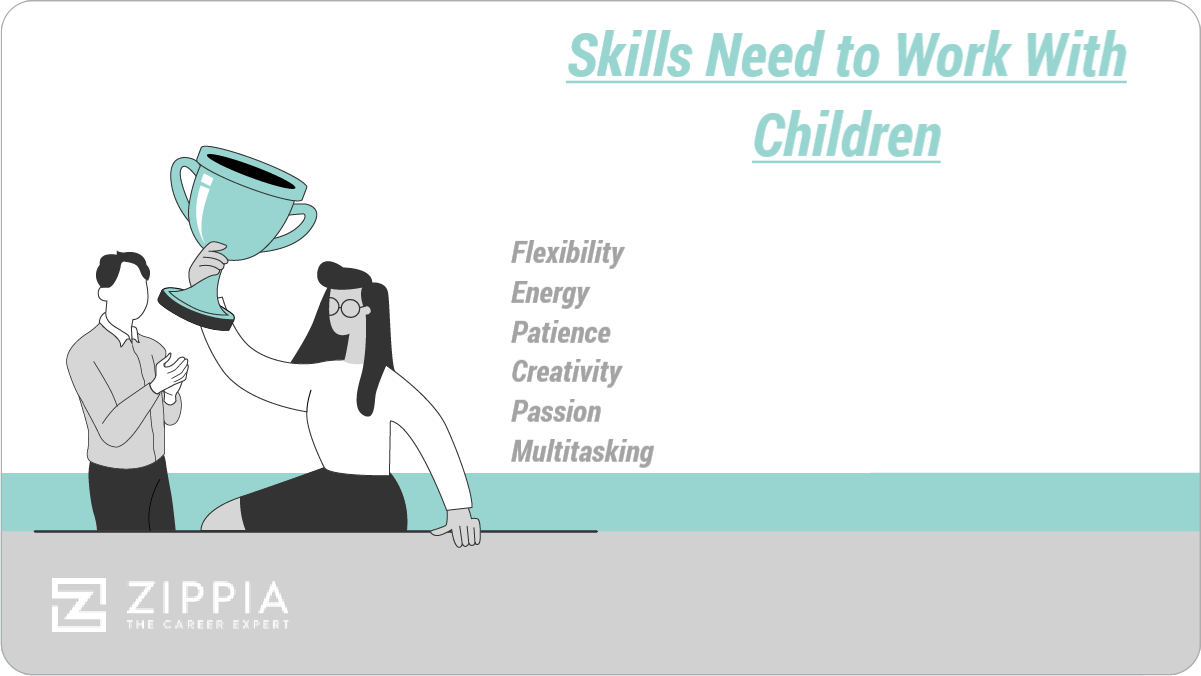- Common Questions
- Interview Questions
- How To Answer Tell Me About Yourself?
- Elevator Pitch
- Where Do You See Yourself In 5 Years?
- What Are Your Career Goals?
- When Can You Start?
- How Do You Define Success?
- Describe Your Work Ethic
- Where Are Your Current Duties?
- What Are Your Learning Goals?
- Intrinsic Vs Extrinsic Motivation
- What Is Your Desired Salary?
- What Makes You Unique?
- Why Are You The Best Person For This Job?
- Reasons For Termination
- What Are Your Work Values
- How To Make A Hard Decision?
- What Are You Most Proud Of?
- Personal Code Of Ethics
- Problem Solving Interview Questions
- Taking Initiative Example
- How Do You Prioritize Your Work
- Explain Gaps In Employment
- Most Rewarding College Experience
- What Is Your Work Style
- Tell Me About A Time When You Made A Mistake On The Job
- Tell Me About Gaps In Employment
- What Are You Passionate About
- What Skills Would You Bring To The Job
- Who Is Your Mentor?
- Tell Me About Gaps In Employment
- How To Answer Tell Me About A Time You Disagreed With Your Boss
- How To Answer Common Screening Questions
- Types Of Questions
- Situational Interview Questions
- Promotion Interview Questions
- Internal Interview Questions
- Open Ended Interview Questions
- Tough Interview Questions
- Leadership Interview Questions
- Teamwork Interview Questions
- Interview Questions About Communication
- Personality Interview Questions
- Internship Interview Questions
- Ice Breaker Questions
- Recruiter Interview Questions
- Brain Teaser Interview Questions
- Group Interview Questions
- Competency Based Interview Question
- Grad School Interview Questions
- Scrum Interview Questions
- Excel Interview Questions
- Common Phone Interview Questions And Answers
- Job Specific Questions
- Why Did You Choose Nursing?
- Why Do You Want To Be A Teacher?
- Why Do You Want To Be A Doctor?
- Why Do You Want To Be A Police Officer?
- Police Officer Interview Questions
- Why Do You Want To Be An Accountant?
- Sales Interview Questions
- Interview Questions For Managers
- Retail Interview Questions
- Teacher Interview Questions
- Accounting Interview Questions
- Teaching Philosophy Examples
- Management Philosophy Examples
- Leadership Philosophy
- What Does Customer Service Mean To You
Find a Job You Really Want In
The idea of being fired is an anxiety-inducing thought for most people, both for the immediate loss of income and the demoralizing effect of not measuring up to expectations. The good news is that involuntary termination is the last resort for most businesses, so getting fired rarely comes out of the blue.
That said, most workers are classified as at-will employees, meaning that they can be fired at any time without any reason or notice from the employer. This sounds like a particularly cold and extreme method of firing, which is why most employers fire with a specific cause in mind.
By understanding and avoiding the different causes that lead employers to fire someone, employees can lower their risk of termination.
We’ll go over the top reasons employees are fired, the rights employees have post-termination, and the frequently asked questions about getting fired from a job.
Common Reasons for Getting Fired
The following list consists of the most common reasons employees get fired. If you’re especially paranoid about keeping your job, use this as a reference point for what not to do in the workplace:
-
Damaging or stealing company property. Damaging or stealing property from the workplace count as serious offenses, and they can get you fired from any position.
Company cars, phones, laptops, or uniforms don’t belong to employees, so they’re expected to remain in good condition throughout your employment. If you damage any of this equipment, you can be terminated, whether it was an accident or not. These damages could be expensive to replace and might even prevent an employee from fulfilling a job responsibility.
Stealing warrants severe punishment, whether you’ve stolen valuables, cash, or general office supplies like pens and paper for personal use.
-
Drug or alcohol possession while on the job. This one may seem pretty obvious. Drinking, smoking, or any kind of drug use on the company’s time guarantees that you’ll be fired. This includes arriving to work intoxicated, especially in any way that interferes with your job performance.
You could get into particularly severe trouble in this case, depending on age restrictions regarding alcohol and drugs, as well as the type of drug, since some may be illegal.
Most alcoholism and drug addiction cases are classified as disabilities under the Americans with Disabilities Act (ADA). However, this law only requires that the employer give the employee time off for treatment. It doesn’t prevent an employer from terminating an employer for being intoxicated at work.
-
Falsifying company records. Falsifying documents involves changing or modifying information on a form with the intention of misleading someone. These documents could include employee timesheets, tax returns, bank account records, or sales records. Anything that defrauds a company or its customers could have harmful effects on everyone involved.
This level of dishonesty is unethical and could potentially cause long-term legal or performance problems for the company. In some cases, this could also result in jail time for the person convicted, depending on the severity of the falsification.
-
Inappropriate social media use. Companies have the right to fire an employee based on social media use. If they find that an employee engages in activities, behaviors, or language that doesn’t align with company policy outside of work, that employee could be subject to termination. Another issue could be insulting the employer online.
Think twice before posting a Twitter rant about the terrible day you had at work or sharing those embarrassing selfies from your drunk weekend. It might seem extreme for your employers to monitor your life on social media, but they’re within their rights to fire you for anything they might consider inappropriate.
Most social media websites have privacy options, so make sure to enable them to limit this kind of risk. You could also create separate personal and professional social media accounts to avoid any overlap between both parts of your life.
-
Insubordination. While it’s doubtful that you’ll always agree with your manager or be happy to carry out a task, outright refusing to do work could get you in trouble. Deliberately obstructive behavior or a combative tone might lead you to lose your job, especially depending on the behavior’s frequency.
If you disagree with something your boss says or does or want to express unhappiness with specific tasks or conditions, address it privately and professionally.
If you’re refusing to do something you think would violate a policy or break the law, contact the human resources department for help.
-
Misconduct or inappropriate behavior. This category is very broad and includes sexual harassment, bullying, criminal misbehavior, fraud, dishonesty, and physical or verbal abuse.
A company can undoubtedly fire an employee for any of these, but they could also face additional charges depending on the action’s severity.
-
Poor performance. This might be among the mildest of all possible offenses and also the most common.
Companies want employees who complete tasks efficiently, and poor performance can lead to an employee becoming a liability that wastes the company’s valuable resources.
If you don’t fulfill the duties outlined in your job description, consistently need oversight or to redo your work, or receive constant warnings about your performance, your employer might see you as a lousy investment and fire you.
-
Taking too much time off. This could include consistent tardiness, frequently taking sick days, taking unapproved time off, or not coming into work when expected.
It’s probably not the best idea to fake an illness at least once a week, just to get an extra day off. Repeated and prolonged absences at work could interfere with your job performance and the work of other employees on your team. Watch out for this, especially if your job is team-oriented or often has to complete projects.
-
Using company property for personal reasons. Depending on the company, your employers might not mind if you use a company device for a personal document or email every once in a while. The problem arises when you’re frequently getting caught using the company internet or equipment for personal use rather than work.
Using laptops, printers, and scanners for non-work purposes could be considered theft by some companies, which is grounds for termination.
-
Violating company policy. Workplace policies are unique to each company, so make sure to review your company’s policies before you get started (yes, this means you should read through all those bulky documents the hiring manager emailed you when you were hired). A violation could be taken quite seriously, depending on the company and the policy.
Company policies could cover a range of things, such as workplace language, dress code, following procedures, office dating, and social media conduct. These kinds of violations would usually consist of smaller slip-ups, but it’s always best to be informed of the rules so you can avoid breaking them.
These are ways getting fired could be entirely under your control, but note that there are times when you don’t expect it.
Job termination is completely different than a layoff, which happens when an employee is let go or forced to resign due to a lack of resources or work on the employer’s end. This is usually unexpected and outside of the employee’s control.
Employee Rights When a Job Is Terminated
If you get fired (either due to some combination of the above reasons, a forced resignation, or a layoff), you do have rights that protect you. An employee has the right to receive a final paycheck and continuing health insurance coverage and has the option of severance pay and unemployment benefits.
-
Final paycheck. In some states, the time frame in which an employee has to receive their final paycheck depends on if they quit or were fired. California has especially strict laws, stating that fired employees should receive paychecks within one business day. If an employee quits without notice, the paycheck should be provided within 72 hours.
-
Health insurance coverage. The Consolidated Omnibus Budget Reconciliation Act (COBRA) of 1985 ensures that families have the right to continued healthcare coverage for a limited time after separation from an employer.
Note that COBRA eligibility requires that you worked for a company that employed 20 or more employees.
-
Severance pay. In exchange for not suing an employer after being forced to resign, employees are offered a severance package that includes a lump sum payment and other possible benefits. This isn’t required and usually depends on an agreement between an individual employer and employee.
If you’re fired for any of the above reasons, you almost certainly won’t receive severance pay.
-
Unemployment benefits. A terminated employee could receive compensation to make up for lost income after separation. This is usually less than the employee’s regular pay and lasts for about 26 weeks.
Note that employees who are fired for just cause likely won’t be eligible for unemployment benefits, but you’ll have to check with your state’s unemployment system. Laid-off employees, on the other hand, are almost always eligible for unemployment insurance.
You’re encouraged to seek assistance if you have any questions about these rights, if you believe you’ve been discriminated against, or if you think your termination is wrongful or unlawful.
Termination may be unlawful if:
-
An implied contract governs the terms of the employment relationship
-
Firing the employee violates public policy
-
Firing the employee violates laws that prohibit discrimination
-
Firing the employee was in retaliation for a specific act protected by law
The U.S. Department of Labor lists each law regulating employment and can help give some advice on filing a claim. You also have the option of checking with your state labor department for more specific information on local employment laws.
Getting Fired From a Job FAQ
-
What happens if you get fired from a job? When you’re fired from a job, you’ll be told your final date (immediately, in some cases) and be given information about your final pay and any continuation of benefits. You’ll typically be told either by your supervisor, HR personnel, or a combination of both.
Afterward, you’ll be asked to return company property and be asked to clean out your workspace. There will likely be follow-up conversations, emails, and paperwork in the days immediately after your firing, but the whole process should be over in less than a week.
-
Is it bad to get fired from a job? Yes, it is bad to be fired from a job. While an involuntary termination isn’t a permanent mark of unemployability, it does raise legitimate questions from hiring managers and recruiters. Pair that with the fact the being fired is traumatic from a self-esteem and income-loss perspective, and most people agree that being fired is a bad event.
That said, being fired from a job that was clearly not a good fit for you can ultimately be a positive thing. Sometimes being fired is the kick in the butt you need to go look for a career that really aligns with your interests and skills.
-
What does being fired from a job mean? Being fired from a job means that your employer ends your work contract. It is one form of involuntary termination because the employee did not choose to terminate the contract.
-
How is being fired different than being laid off? When an employer fires an employee, it is personal to that employee’s performance or actions on the job. When employees are laid off, it is done en masse and it has nothing to do with the employees’ performance, but rather the overall financial health of the company.
When laid off, you are typically eligible for unemployment, the continuation of benefits, and a severance package. These things are not common for employees who have been fired.
-
What do you say when you get fired? When you get fired, you shouldn’t say anything in the heat of anger, disappointment, or anxiety that you might regret later. A healthy way to avoid spouting your gut reaction is to ask for a moment to process the news, in private if you prefer.
If you want to fight for your job, you can ask if they’ll reconsider and what steps would be necessary to see that happen. Regardless, you should do your best to understand exactly why you’re being fired so that you can use that information for self-improvement and finding a new job that better suits you.
-
Can employers check if you get fired? Yes, employers can check if you got fired. If you are honest on your resume about your work history and truthful on your list of professional references, then a hiring manager has all the tools they need to discover the truth.
Of course, you can try to lie on your resume and/or get your professional references to lie about the terms of your departure, but if your deceit is uncovered, it’ll certainly cost you the job opportunity.
-
Is quitting better than being fired? Yes, in most cases it is better to quit than be fired. Quitting maintains your reputation, gives you control over the timing and terms of your departure, and helps foster a healthier relationship with your former employer.
Being fired is almost entirely a negative, as you likely won’t be eligible for unemployment benefits and won’t have as strong of a reference from that employer. Also, when you’re fired, you don’t have any control over timing, so you can’t plan your savings or budgeting around this major life change.
On the other hand, being laid off does usually comes with a severance package, a generous continuation of benefits, and long-term unemployment eligibility. If you hear the news that layoffs are likely coming for your department, it may be financially wiser to remain in your position and allow yourself to be laid off rather than quit.
Final Thoughts
Getting fired is hard to navigate, whether you see it coming or not. You have to deal with the fallout of separating from one employer, potentially impacting your chances with a future one.
Be aware of these common reasons for employee termination, and do your best to avoid the behaviors associated with them. This way, you’ll have a better chance of protecting your job.
- Common Questions
- Interview Questions
- How To Answer Tell Me About Yourself?
- Elevator Pitch
- Where Do You See Yourself In 5 Years?
- What Are Your Career Goals?
- When Can You Start?
- How Do You Define Success?
- Describe Your Work Ethic
- Where Are Your Current Duties?
- What Are Your Learning Goals?
- Intrinsic Vs Extrinsic Motivation
- What Is Your Desired Salary?
- What Makes You Unique?
- Why Are You The Best Person For This Job?
- Reasons For Termination
- What Are Your Work Values
- How To Make A Hard Decision?
- What Are You Most Proud Of?
- Personal Code Of Ethics
- Problem Solving Interview Questions
- Taking Initiative Example
- How Do You Prioritize Your Work
- Explain Gaps In Employment
- Most Rewarding College Experience
- What Is Your Work Style
- Tell Me About A Time When You Made A Mistake On The Job
- Tell Me About Gaps In Employment
- What Are You Passionate About
- What Skills Would You Bring To The Job
- Who Is Your Mentor?
- Tell Me About Gaps In Employment
- How To Answer Tell Me About A Time You Disagreed With Your Boss
- How To Answer Common Screening Questions
- Types Of Questions
- Situational Interview Questions
- Promotion Interview Questions
- Internal Interview Questions
- Open Ended Interview Questions
- Tough Interview Questions
- Leadership Interview Questions
- Teamwork Interview Questions
- Interview Questions About Communication
- Personality Interview Questions
- Internship Interview Questions
- Ice Breaker Questions
- Recruiter Interview Questions
- Brain Teaser Interview Questions
- Group Interview Questions
- Competency Based Interview Question
- Grad School Interview Questions
- Scrum Interview Questions
- Excel Interview Questions
- Common Phone Interview Questions And Answers
- Job Specific Questions
- Why Did You Choose Nursing?
- Why Do You Want To Be A Teacher?
- Why Do You Want To Be A Doctor?
- Why Do You Want To Be A Police Officer?
- Police Officer Interview Questions
- Why Do You Want To Be An Accountant?
- Sales Interview Questions
- Interview Questions For Managers
- Retail Interview Questions
- Teacher Interview Questions
- Accounting Interview Questions
- Teaching Philosophy Examples
- Management Philosophy Examples
- Leadership Philosophy
- What Does Customer Service Mean To You





